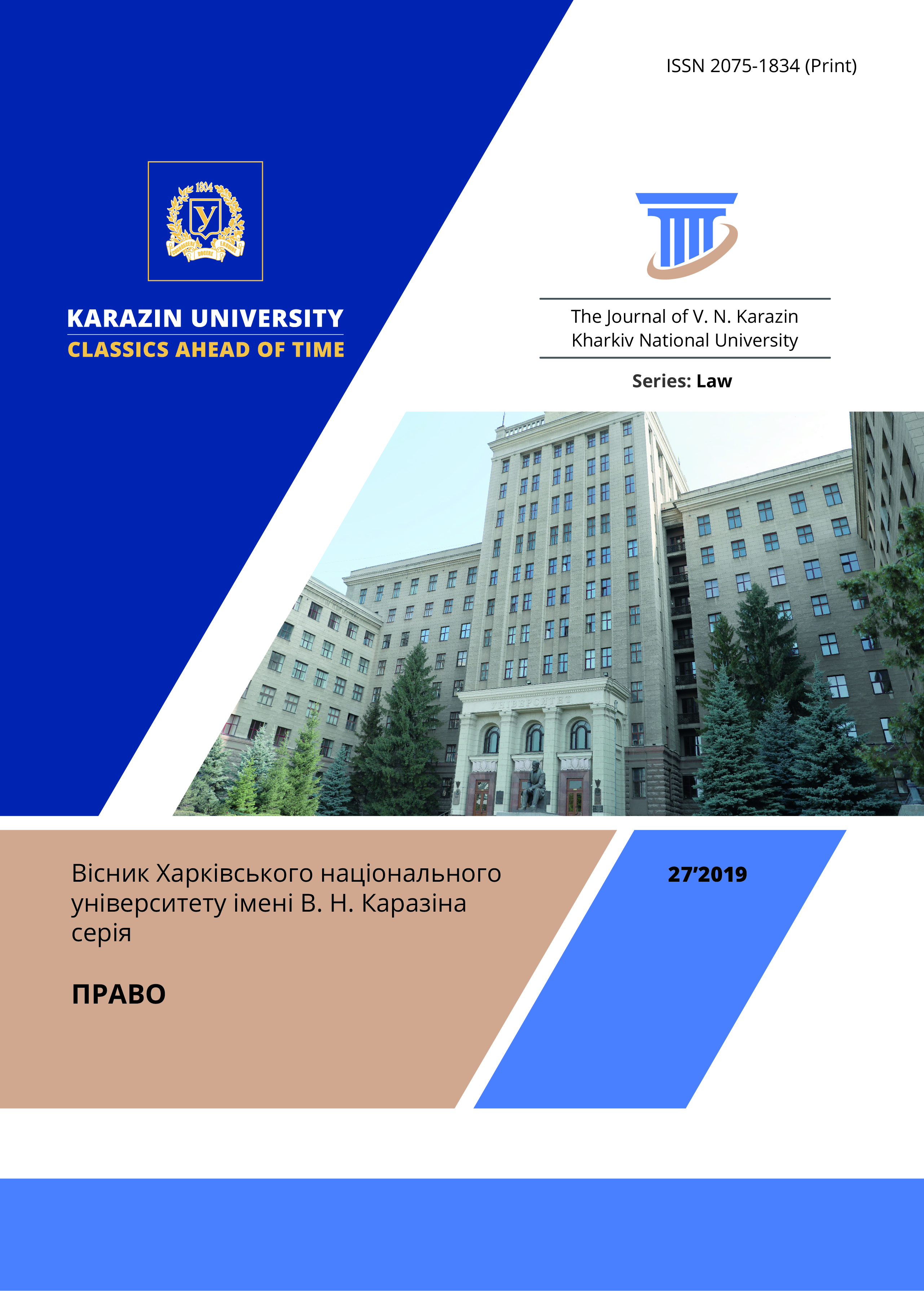THE IMPACT OF THE LAW VALUES TO OVERCOME LEGAL NIGILISM
Abstract
the article substantiates the idea that in the process of the formation and development of the foundations of a civil society and the rule of law, legal nihilism continues showing to a certain extent its potential and thus inhibiting progressive legal changes. Attention is focused on the peculiarities of the stability of legal nihilism and the problems of its gradual overcoming. It is emphasized in the offered article the importance of the law values priority, of the legal ideal, of the principle of social justice in the process of eradicating the manifestations of legal nihilism in the relevant areas of society life activity and personality. The authors came to the following conclusion: Values of law is a phenomenon of objective property, to be based on the ideas of the natural law, arising from the fact of human existence and directed exclusively to a person, to his rights and needs. Value entity of law really manifests itself only under operating conditions of civil society and legal state, recognising a person, his rights and freedoms as the highest social value. Legal nihilism begins losing its potential strength only when the majority of members of civil society recognize the priority of values of law. Confrontation of values of law and legal nihilism decisively narrows the scope of negative legal phenomena in all forms of their manifestation. Basing on the values of law, civil society institutions can solve problems being in the field of interests and needs of each person, so creating favourable conditions to eradicate legal nihilism. Using the truly valuable potential of law (first of all, legal law), civil society and legal state carry out transformations that ensure decent existence of any individual and by this minimizing the manifestation of legal nihilism. Even with a sufficiently high level of development of civil society and legal state, the practical negative attitude to legal nihilism should not weaken, because in the face of any social and legal reality, various offenses (including serious crimes) can be committed. Overcoming legal nihilism is associated with constant increase in the level of legal awareness and legal culture of the majority of members of civil society, which is a consequence of the following conclusions. Values of law is a phenomenon of objective property, based on the ideas of natural law, arising from the fact of a person’s existence and directed exclusively to a person, his rights and needs. The value essence of law really manifests itself only in the conditions of the functioning of civil society and the rule of law, recognize a person, his rights and freedoms as the highest social value. Legal nihilism begins to lose gradually its potential strength only when the majority of members of civil society recognize the priority of the values of law. The confrontation of the values of law and legal nihilism decisively narrows the scope of negative legal phenomena in all forms of their manifestation. Based on the values of law, civil society institutions can solve problems that are in the field of interests and needs of each person, which creates favourable conditions for the eradication of legal nihilism. Using the truly valuable potential of law (first of all, legal laws), civil society and the rule of law carry out those transformations that ensure the worthy existence of the individual and thereby minimize the manifestation of legal nihilism. Even with a sufficiently high level of development of civil society and legal law any negative attitude to legal nihilism should not be weaken, since in the conditions of any social and legal reality, various offenses (including serious crimes) can be committed. Overcoming legal nihilism is associated with permanent increase in the level of legal awareness and legal culture of the majority of civil society members which is a consequence of increase of quality of legal education and upbringing.
Downloads
References
Иеринг Р. Фон. Избранные труды. Самара. Изд-во. СГУ, 2003.
Кант И. Идея всеобщей истории во всемирно-гражданском плане. Сочинения на немецком и русском языках. Т. 1. Москва. Зерцало-М, 1994. 345 с.
Лапаева В.В. Социология права. Москва. ИНФРА-М, 2000. 402 с.
Монтескье Ш.-Л. О духе законов. Избранные произведения. Москва. Гослитиздат, 1956. 803 с.
Скакун О.Ф. Теория государства и права (энциклопедический курс). Харьков. «Эспада», 2005. 839 с.
Цицерон М. Т. Диалоги. О государстве. О законах. Москва. Наука, 1996. 386 с.
Copyright (c) 2019 Mark M. Voronov

This work is licensed under a Creative Commons Attribution 4.0 International License.





